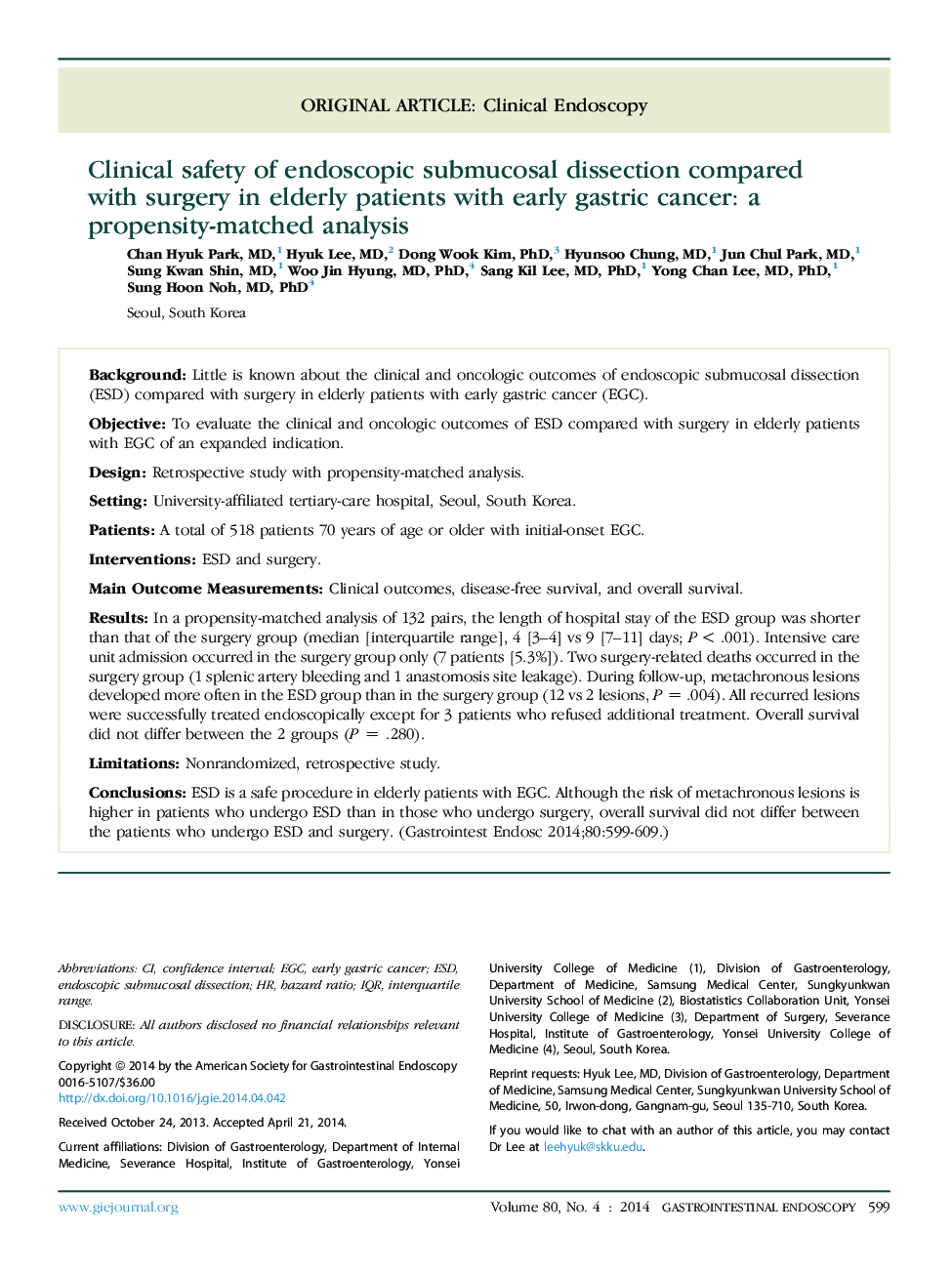| Article ID | Journal | Published Year | Pages | File Type |
|---|---|---|---|---|
| 3303017 | Gastrointestinal Endoscopy | 2014 | 11 Pages |
BackgroundLittle is known about the clinical and oncologic outcomes of endoscopic submucosal dissection (ESD) compared with surgery in elderly patients with early gastric cancer (EGC).ObjectiveTo evaluate the clinical and oncologic outcomes of ESD compared with surgery in elderly patients with EGC of an expanded indication.DesignRetrospective study with propensity-matched analysis.SettingUniversity-affiliated tertiary-care hospital, Seoul, South Korea.PatientsA total of 518 patients 70 years of age or older with initial-onset EGC.InterventionsESD and surgery.Main Outcome MeasurementsClinical outcomes, disease-free survival, and overall survival.ResultsIn a propensity-matched analysis of 132 pairs, the length of hospital stay of the ESD group was shorter than that of the surgery group (median [interquartile range], 4 [3–4] vs 9 [7–11] days; P < .001). Intensive care unit admission occurred in the surgery group only (7 patients [5.3%]). Two surgery-related deaths occurred in the surgery group (1 splenic artery bleeding and 1 anastomosis site leakage). During follow-up, metachronous lesions developed more often in the ESD group than in the surgery group (12 vs 2 lesions, P = .004). All recurred lesions were successfully treated endoscopically except for 3 patients who refused additional treatment. Overall survival did not differ between the 2 groups (P = .280).LimitationsNonrandomized, retrospective study.ConclusionsESD is a safe procedure in elderly patients with EGC. Although the risk of metachronous lesions is higher in patients who undergo ESD than in those who undergo surgery, overall survival did not differ between the patients who undergo ESD and surgery.
